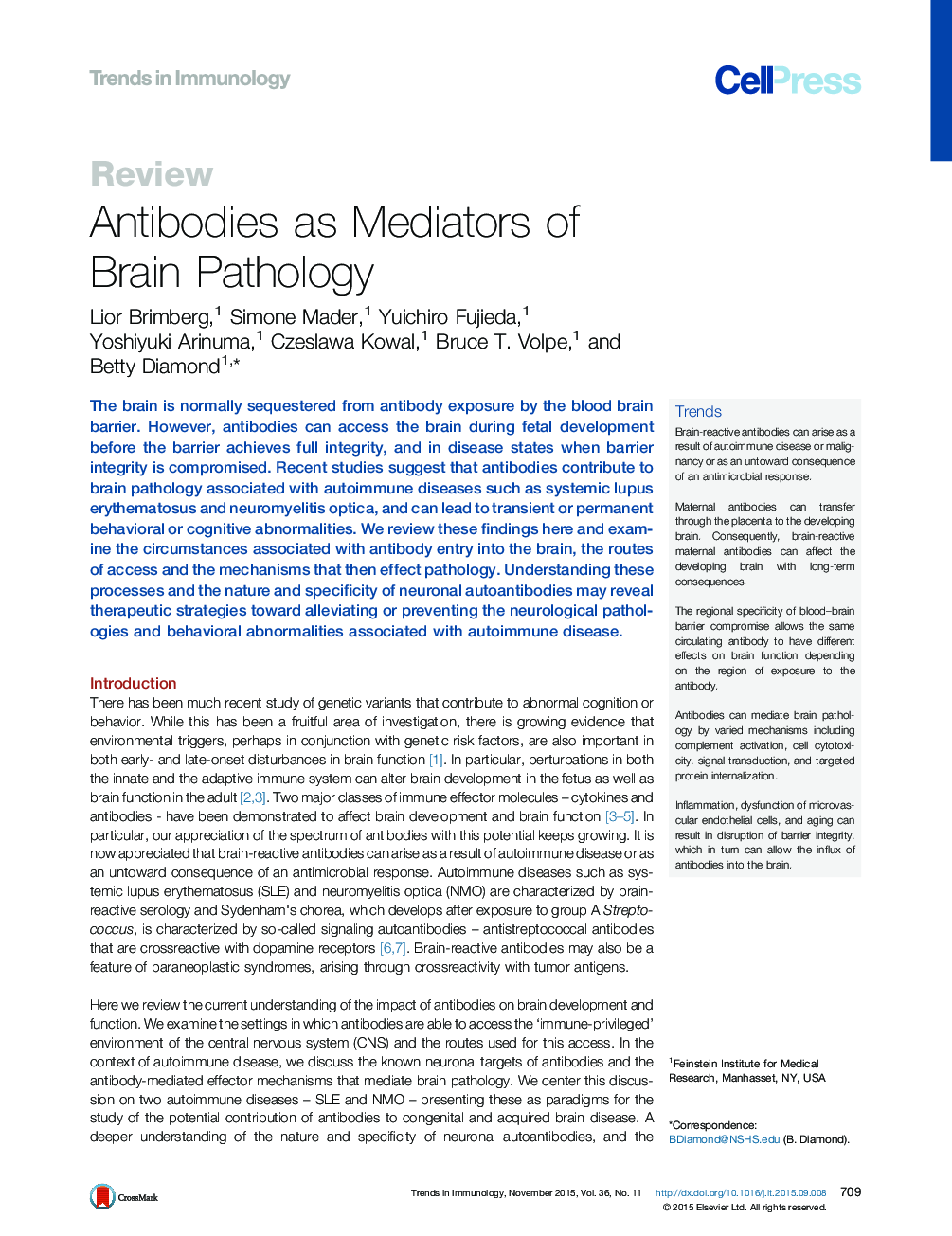| Article ID | Journal | Published Year | Pages | File Type |
|---|---|---|---|---|
| 4359784 | Trends in Immunology | 2015 | 16 Pages |
The brain is normally sequestered from antibody exposure by the blood brain barrier. However, antibodies can access the brain during fetal development before the barrier achieves full integrity, and in disease states when barrier integrity is compromised. Recent studies suggest that antibodies contribute to brain pathology associated with autoimmune diseases such as systemic lupus erythematosus and neuromyelitis optica, and can lead to transient or permanent behavioral or cognitive abnormalities. We review these findings here and examine the circumstances associated with antibody entry into the brain, the routes of access and the mechanisms that then effect pathology. Understanding these processes and the nature and specificity of neuronal autoantibodies may reveal therapeutic strategies toward alleviating or preventing the neurological pathologies and behavioral abnormalities associated with autoimmune disease.
TrendsBrain-reactive antibodies can arise as a result of autoimmune disease or malignancy or as an untoward consequence of an antimicrobial response.Maternal antibodies can transfer through the placenta to the developing brain. Consequently, brain-reactive maternal antibodies can affect the developing brain with long-term consequences.The regional specificity of blood–brain barrier compromise allows the same circulating antibody to have different effects on brain function depending on the region of exposure to the antibody.Antibodies can mediate brain pathology by varied mechanisms including complement activation, cell cytotoxicity, signal transduction, and targeted protein internalization.Inflammation, dysfunction of microvascular endothelial cells, and aging can result in disruption of barrier integrity, which in turn can allow the influx of antibodies into the brain.
